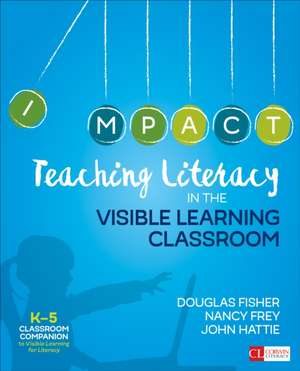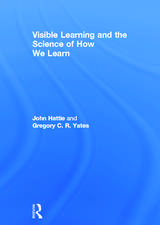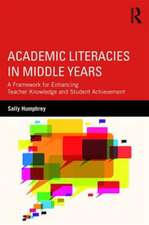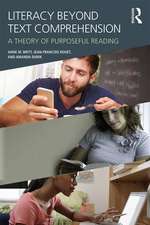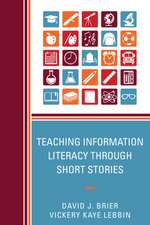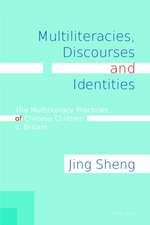Teaching Literacy in the Visible Learning Classroom, Grades K-5: Corwin Literacy
Autor Douglas Fisher, Nancy Frey, John Hattieen Limba Engleză Paperback – 25 apr 2017
Din seria Corwin Literacy
-
 Preț: 285.18 lei
Preț: 285.18 lei -
 Preț: 158.08 lei
Preț: 158.08 lei -
 Preț: 278.39 lei
Preț: 278.39 lei -
 Preț: 243.82 lei
Preț: 243.82 lei -
 Preț: 244.25 lei
Preț: 244.25 lei -
 Preț: 88.42 lei
Preț: 88.42 lei -
 Preț: 273.64 lei
Preț: 273.64 lei -
 Preț: 274.70 lei
Preț: 274.70 lei -
 Preț: 200.91 lei
Preț: 200.91 lei -
 Preț: 248.26 lei
Preț: 248.26 lei -
 Preț: 284.26 lei
Preț: 284.26 lei -
 Preț: 294.79 lei
Preț: 294.79 lei -
 Preț: 281.36 lei
Preț: 281.36 lei -
![Mindsets and Moves: Strategies That Help Readers Take Charge [Grades K-8]](https://i3.books-express.ro/bs/9781506314938/mindsets-and-moves.jpg) Preț: 156.17 lei
Preț: 156.17 lei -
 Preț: 283.27 lei
Preț: 283.27 lei -
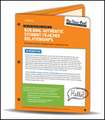 Preț: 88.42 lei
Preț: 88.42 lei -
 Preț: 281.94 lei
Preț: 281.94 lei -
 Preț: 248.26 lei
Preț: 248.26 lei -
 Preț: 267.50 lei
Preț: 267.50 lei -
 Preț: 237.15 lei
Preț: 237.15 lei -
 Preț: 270.76 lei
Preț: 270.76 lei -
![Comprehension [Grades K-12]: The Skill, Will, and Thrill of Reading](https://i3.books-express.ro/bs/9781071812839/comprehension-grades-k-12.jpg) Preț: 287.79 lei
Preț: 287.79 lei -
 Preț: 278.10 lei
Preț: 278.10 lei -
 Preț: 245.45 lei
Preț: 245.45 lei -
 Preț: 204.26 lei
Preț: 204.26 lei -
 Preț: 272.62 lei
Preț: 272.62 lei -
![Every Minute Matters [Grades K-5]: 40+ Activities for Literacy-Rich Classroom Transitions](https://i4.books-express.ro/bs/9781544382449/every-minute-matters-grades-k-5.jpg) Preț: 193.61 lei
Preț: 193.61 lei -
 Preț: 274.00 lei
Preț: 274.00 lei -
![Flash Feedback [Grades 6-12]: Responding to Student Writing Better and Faster – Without Burning Out](https://i4.books-express.ro/bs/9781544360492/flash-feedback-grades-6-12.jpg) Preț: 232.71 lei
Preț: 232.71 lei -
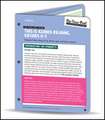 Preț: 88.67 lei
Preț: 88.67 lei -
 Preț: 147.92 lei
Preț: 147.92 lei -
 Preț: 273.44 lei
Preț: 273.44 lei -
 Preț: 184.56 lei
Preț: 184.56 lei -
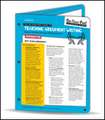 Preț: 88.67 lei
Preț: 88.67 lei -
 Preț: 236.11 lei
Preț: 236.11 lei -
 Preț: 209.15 lei
Preț: 209.15 lei -
 Preț: 256.83 lei
Preț: 256.83 lei -
 Preț: 291.04 lei
Preț: 291.04 lei -
 Preț: 288.67 lei
Preț: 288.67 lei -
 Preț: 273.44 lei
Preț: 273.44 lei -
 Preț: 278.10 lei
Preț: 278.10 lei -
 Preț: 174.52 lei
Preț: 174.52 lei -
 Preț: 244.44 lei
Preț: 244.44 lei -
![Mentor Texts That Multitask [Grades K-8]: A Less-Is-More Approach to Integrated Literacy Instruction](https://i3.books-express.ro/bs/9781071836132/mentor-texts-that-multitask-grades-k-8.jpg) Preț: 241.23 lei
Preț: 241.23 lei -
 Preț: 140.61 lei
Preț: 140.61 lei -
 Preț: 216.22 lei
Preț: 216.22 lei -
 Preț: 218.84 lei
Preț: 218.84 lei -
 Preț: 277.50 lei
Preț: 277.50 lei -
 Preț: 273.44 lei
Preț: 273.44 lei
Preț: 278.64 lei
Nou
53.32€ • 55.67$ • 44.13£
Carte disponibilă
Livrare economică 15-29 martie
Livrare express 01-07 martie pentru 33.90 lei
Specificații
ISBN-10: 1506332366
Pagini: 272
Dimensiuni: 187 x 232 x 20 mm
Greutate: 0.54 kg
Ediția:First Edition
Editura: SAGE Publications
Colecția Corwin
Seria Corwin Literacy
Locul publicării:Thousand Oaks, United States
Cuprins
Chapter 1. Mobilizing Visible Learning for Literacy
Visible Learning for Literacy
Components of Effective Literacy Learning
Knowledge of How Children Learn
Developmental View of Learning
Meaningful Experiences and Social Interaction
Surface, Deep, and Transfer Learning
Phases of Reading Development
Phases of Writing Development
Formats and Scheduling
Time Organization
Across a Week
Across Content Areas
Spotlight on Three Teachers
Conclusion
Chapter 2. Teacher Clarity
Understanding Expectations in Standards
Learning Intentions in the Language Arts
Student Ownership of Learning Intentions
Connecting Learning Intentions to Prior Knowledge
Make Learning Intentions Inviting and Engaging
Social Learning Intentions
Success Criteria in Language Arts
Success Criteria Are Crucial for Motivation
Conclusion
Chapter 3. Direct Instruction
Relevance
Teacher Modeling
Pair With Think-Alouds
The “I” and “Why” of Think-Alouds
Students Should Think Aloud, Too
Checking for Understanding
Use Questions to Probe Student Thinking
Guided Instruction
Formative Evaluation During Guided Instruction
Independent Learning
Fluency Building
Application
Spiral Review
Extension
Closure
Conclusion
Chapter 4. Teacher-Led Dialogic Instruction
Effective Talk, Not Just Any Talk
Foster Deep Learning and Transfer
Listen Carefully
Facilitate and Guide Discussion
Teacher-Led Tools for Dialogic Instruction
Anticipation Guides
Guided Reading
Write Dialogically With Shared Writing
Language Experience Approach
Interactive Writing
Close and Critical Reading
Conclusion
Chapter 5. Student-Led Dialogic Learning
The Value of Student-to-Student Discussion
The Social and Behavioral Benefits of Peer-Assisted Learning
Fostering Collaborative Discussions
Teach Children to Develop Their Own Questions
Student-Led Tools for Dialogic Learning
Fishbowl
Collaborative Reasoning
Gallery Walks
Literature Circles
Readers Theatre
Reciprocal Teaching
Peer Tutoring
Conclusion
Chapter 6. Independent Learning
Finding Flow
Learning Words Independently
Independently Working With Words
Open and Closed Concept Word Sorts
Vocabulary Cards
Spelling Words
Acquisition
Retention
Automaticity
Word Games
Building Fluent Readers
Reading Into Recorder
Neurological Impress Model
Independent Reading
Independent Writing
Power Writing
Extended Writing Prompts
Big Ideas About Independent Learning
Does It Promote Metacognition?
Does It Promote Goal-Setting?
Does It Promote Self-Regulation?
Conclusion
Chapter 7. Tools to Use in Determining Literacy Impact
Do You Know Your Impact?
Do You Know Your Collective Impact?
ASSESSING READING
Assessing Emergent and Early Readers
Language Comprehension
Decoding
Early Language Learning Assessments
Concepts About Print
Yopp-Singer Test of Phoneme Segmentation
Sight Words
Retellings
Decoding Assessments
Letter Identification
Phonics
Assessing Reading of Meaningful Text
Miscue Analysis
Assessing Developing Readers
Assessing Reading Comprehension
Informal Reading Inventories
Cloze Procedure
Reading Fluency
Metacomprehension Strategies Index
Assessing Attitudes Toward Reading
Elementary Reading Attitude Survey
ASSESSING WRITING
Assessing Spelling
Assessing Writing Fluency
Assessing Writing Holistically
Literacy Design Collaborative Student Work Rubrics
Assessing Writing Attitude and Motivation
Writing Attitude Survey
Why Assess? Know Your Impact
Conclusion
Compendium of Assessments
Appendix: Effect Sizes
References
Index
Notă biografică
Douglas Fisher, Ph.D., is professor and chair of educational leadership at San Diego State University and a leader at Health Sciences High and Middle College. Previously, Doug was an early intervention teacher and elementary school educator. He is the recipient of an International Reading Association William S. Grey citation of merit and an Exemplary Leader award from the Conference on English Leadership of NCTE. He has published numerous articles on teaching and learning as well as books such as The Teacher Clarity Playbook, PLC+, Visible Learning for Literacy, Comprehension: The Skill, Will, and Thrill of Reading, How Tutoring Works, andHow Learning Works. Doug loves being an educator and hopes to share that passion with others.
